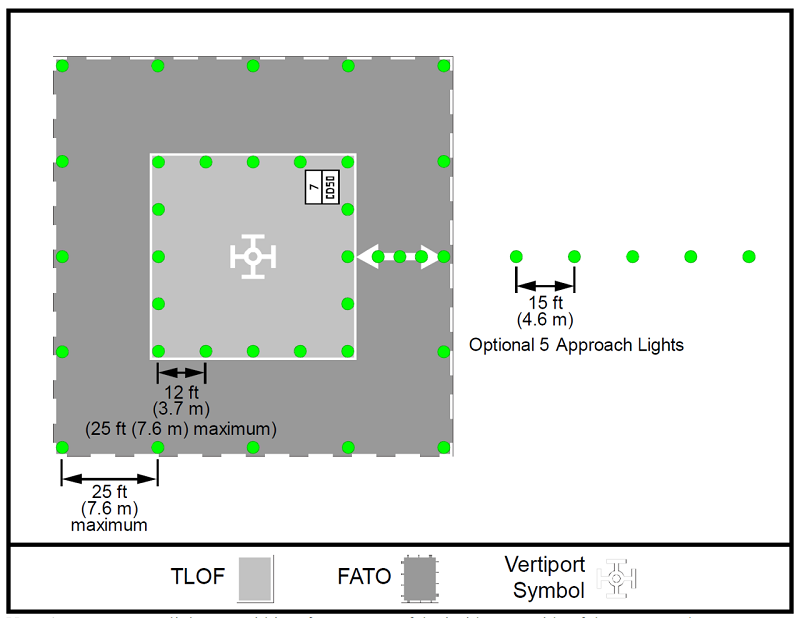FAA releases vertiports design standards for safe integration of urban air mobility
The United States Federal Aviation Administration (FAA) yesterday published new design guidelines for vertiports, the ground infrastructure required for the establishment of urban air mobility (UAM) services. They are based on research conducted by the transportation agency, collaboration with industry partners and feedback from stakeholders.
The design standards will serve as a starting point to provide key information to airport owners, operators and infrastructure developers involved in the buildout of facilities that will support the ground operations of electric vertical take-off and landing (eVTOL) aircraft.
Main provisions
Among other directives, the document establishes the dimensions of take-off and landing areas, and the surrounding airspace necessary to perform departure and approach manoeuvres safely. In addition, it specifies guidelines on the markings, lighting and ground visual aids required at each vertiport.

On the other hand, the guideline establishes a series of initial standards aimed at optimising the safety of electric batteries and their charging process, key aspects of urban air mobility operations. Finally, it details the requirements for the installation of landfills in areas adjacent to airports currently in operation, as well as the construction of new landfills on existing structures.
The guide will be used during the early stages of the implementation of urban air mobility ecosystems. Based on performance, the initial provisions will be adjusted and expanded.
Full document
eb-105-vertiportsSee also: Urban air mobility: Boeing and Wisk Aero unveil concept of operations


Para comentar, debés estar registradoPor favor, iniciá sesión